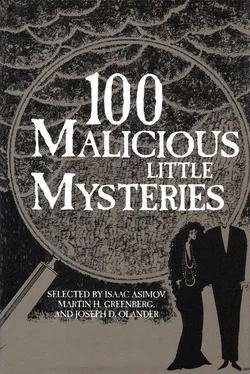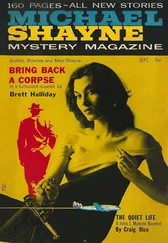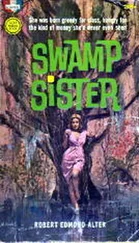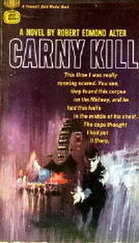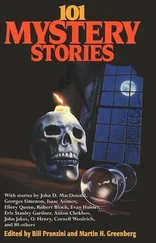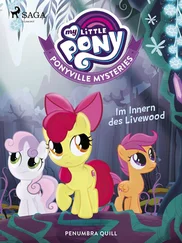I pray you, Hal, do not judge me in haste. I have a horror of judgements which can not be undone. This present disgrace took its root when you and I were little more than children, in 1616 when your father sued and won his unjust judgement against Thomas Penhallow; and when Penhallow would have appealed, the Justice replied to him in the words King James had used to the Star Chamber, that “it is better to maintain an unjust judgement, than ever to be questioning after sentence is passed.” So that Penhallow was ruined, losing house and lands and all, and it was rumoured his child starved and his wife left him because of this, too. He had reason enough to hate your father, Hal, but he dropped from sight, and for fifteen years his lordship had no thought of him save to gloat now and again over those words of his late Majesty, which could be turned to such convenient use.
Only, some while after you were buried, your father went to work at Master Carnsew and Sir Edward, and by wearing them down and wearing them down he was able, last year, to buy out both their shares in the Wheal Nancy. But one day going to see his new mine, he stood there looking on whilst the men were drawn up out of the shaft, when up came one who, on stepping into the light of day, stood and stood looking back at his lordship. Then your father, peering more closely, saw beneath the grime and ore dust and coating of years, and knew this man to be Thomas Penhallow.
We searched and made enquiry (for after Master Harkness refused to stop longer in Wilharthen House, your father had made of me, though a woman, a sort of secretary; a clever economy it was for him, seeing he need pay me no more than food, gowns, and chamber in Wilharthen, which he must have provided me in any case; nor could I leave him, having no where to go). But all we learnt was that Penhallow had been three or four years in the Wheal Nancy, working as a tributer, for a share of the ore he brought to surface, and a good man for finding out new lodes; and the mine captain thought he had come from the Great Pelcoath when it filled with water, but how long he had been at Pelcoath, or where he lived before that, the captain could not say. Your father privately fed a hope that Penhallow, now he had seen his old and powerful enemy, would leave of his own will, but when Penhallow did not do so, his lordship began to cheat him of his earnings: your father had learned well enough, Hal, the arts of juggling accounts and corrupting assayers. To my shame, I also helped him cast up his columns of false figures — there are so many little persecutions a man may put upon his daughter-in-law day by day, she living alone under his roof. But Penhallow did not leave, only his pile of ore grew less, which diminished a little your father’s profits from the mine. Then, in the next fortnight there was a cave-in that shut up the new tunnel, and although no men were trapped therein, yet no ore could be got from it for three days while they dug it out again. At the last, his lordship went again to see how he might have more tin out of the miners, when Penhallow’s core, having come up after their morning’s time below, and playing at quoits, a quoit flew astray and narrowly missed your father, who would believe no otherwise but that it had come in malice from Penhallow’s hand.
Whether indeed Thomas Penhallow meant your father some bodily mischief, or your father merely chose to believe it was so, his lordship now made up his mind he must see to the man he had wronged fifteen years ago, before that man saw to him. There was a certain worthless fellow called Ned Curnow working at the Nancy, or rather signed on to draw his month’s pay, for little ore he ever brought to surface. They said that by some traces in his speech and bearing he must be some gentleman or gentleman’s son fallen into low estate, and scarcely a day passed but Curnow was in mischief of some sort, and often serious mischief. The mine captain pointed him out to your father, that same day of the quoit, remarking he wished to turn this Curnow out of the mine. His lordship questioned the captain more closely, and ended by telling him to have the fellow come round to Wilharthen House.
He did not come round until two mornings after, and being let in by Bosvannion (our new steward, Hal; old Parsons died a fortnight after you, of a kick he had from Thomson’s jackass), and finding us in the parlour, Curnow bowed, and looked at me as a man looks at a woman, past my thirtieth year as I was, and still in the mourning I have vowed never to lay aside. Then taking an apple from the bowl on the table, he sat in the oaken armchair, which had used to be your favourite, and put his feet on the settle. Three weeks before, this vagabond had been whipt through the streets of Saltash, and had stood in the pillory, and cared not who knew it, and yet he bore himself as if Wilharthen were an ale-house, and your father his drinking companion. Only to me, Hal, did he shew respect. I sat on and sewed. Your father had brought me far enough into his confidence that, though he did not tell me in so many words all that was in his evil heart, he cared little whether I went or remained.
His lordship told Curnow of certain enquiries he had made. “It was only by the grace of Sir Edward Chilwidden,” said he, “that you were not banished to the galleys when you would not say the name of your home parish, and it is only the lightest thread holds you from the Stannary Gaol now.”
“Send me up, then,” said Curnow, “to galleys or gaol, whichever you will.” The rogue had, I think, washed his face before coming up, and perhaps even his hair, which fell long and golden on his shoulders; but his beard was untrimmed and the rags he wore left the dust of the mine on all they touched, and he was like a man who has lost all joy and desire and hope, so that he no longer cares how long he lives or when he dies.
I too, Hal, I had lost all joy, all desire and hope, and there have come lines into my face, and silver hairs in with the chestnut. I would look very seldom in my glass, but that it was your gift to me.
So your father talked for some minutes to Curnow, sounding him, as I have seen him sound the mettle of a mare before buying, or the honesty of a judge before bribing, whilst Curnow sat and ate his apple. The colour of Curnow’s eyes was between green and grey, and he looked at your father as I think he might look at a long deep shaft in the mine. At length his lordship came to the point, and offered Curnow fifteen pounds to do away with Thomas Pen hallow.
Curnow put back his head and laughed. “So I am to murder a man,” he said, “and be paid for ’t too. How if I were to go to the magistrates with this tale?”
His lordship replied that “I have the magistrates in my purse, and judges too.”
Curnow threw the core of his apple into the fire. “I misdoubt that,” said he, “if you pay them in proportion as you offer to pay me.”
Then they haggled over the blood money as if Pen hallow had been a pound of fish or a pile of ore, and at length Curnow settled for thirty pounds. His lordship gave him ten, and told him to return when he had done the thing, and to come at night. Curnow bowed to me again in leaving us, and looked once more into my eyes, as a man looks at a woman. I dropt my eyes to my seam. (Your father had money enough, Hal, I could have sewed with good thread, that was not forever knotting and breaking.)
I had no power to stop this thing, Hal, but what great difference was there, after all, between how your father had dealt with Thomas Penhallow fifteen years ago and how he would deal with him now? In any case, whatever we keep hid from outsiders and strangers, it is no life to go about in ignorance and suspicion of those under the same roof with you, those on whom you depend; and I judged it better I should know, than only suspect.
Читать дальше
